Earth Week is officially April 21-27 this year and with that in mind, we’ve been keeping an eye on ways we can do our part to better the earth and ourselves on a daily basis.
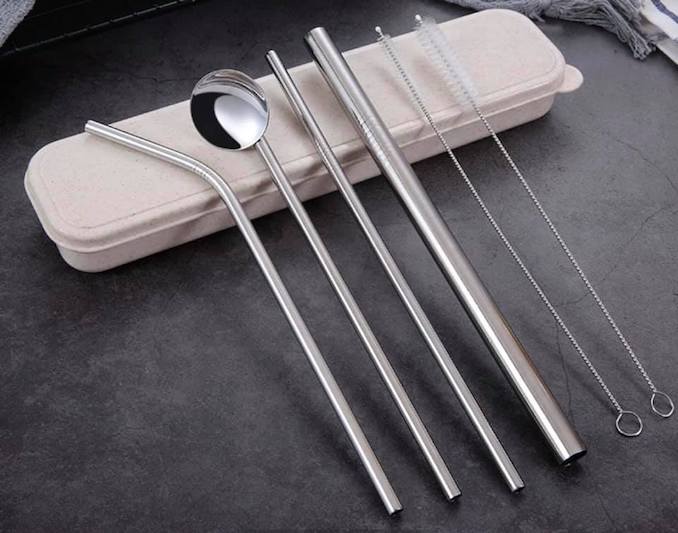
CoolStraw: Most of us now have heard that disposable straws, the ones we use in our drinks, are awful for the environment. According to strawsintheocean.org, the US alone uses over 500 million straws per day – that’s enough to fill 127 school buses in one day. Most of the straws end up in the oceans polluting the water and jeopardizing marine life. The plastic doesn’t dissolve but breakdown into smaller pieces that can be ingested by the birds, turtles, and fish. While getting rid of straws completely probably won’t happen and some actually do need them (including elderly, people who have had surgeries, strokes etc) but our awareness and choices can influence having alternative straws in our daily life. Collapsable or stainless steel straws can be washed and reused. Yes, you can still enjoy your bubble tea and doing your part.
***
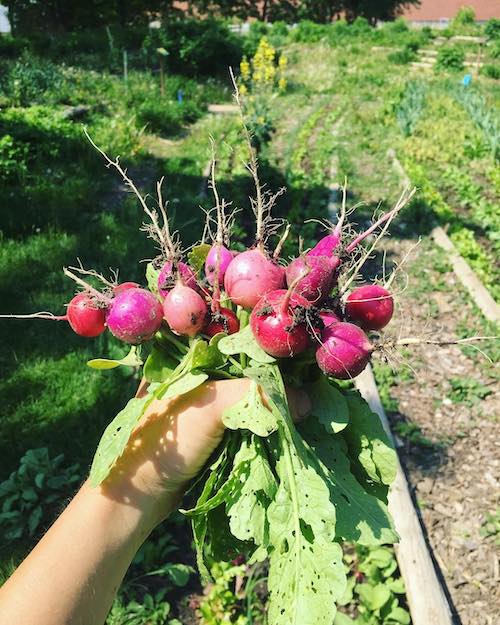
Garden Sharing & Community Gardens: Toronto has rich soil right in our own urban backyards. You may not have the greenest of thumbs but if you have some space to share, you may want to look into opening up for neighbours, locals to plant vegetables and herbs to share your backyard space. Often in return, you get to enjoy a portion of the bounty. There are established networks, like gardensharingtoronto.ca already in place to help connect those on both sides – land owners and growers. Important to learn about by-laws but its a rewarding way to grow and share the freshest produce especially in the upcoming summer and fall seasons. Another idea is to coordinate with your neighbours on who’s growing what. Our neighbours have shared herbs, rhubarb, cherries, tomatoes, and zucchinis over the years. You’ll also help the environment by reducing the carbon footprint of transporting fresh produce. If you’ve got a community garden and want to donate the produce Foodshare.net is a great resource — no garden is too small.
***
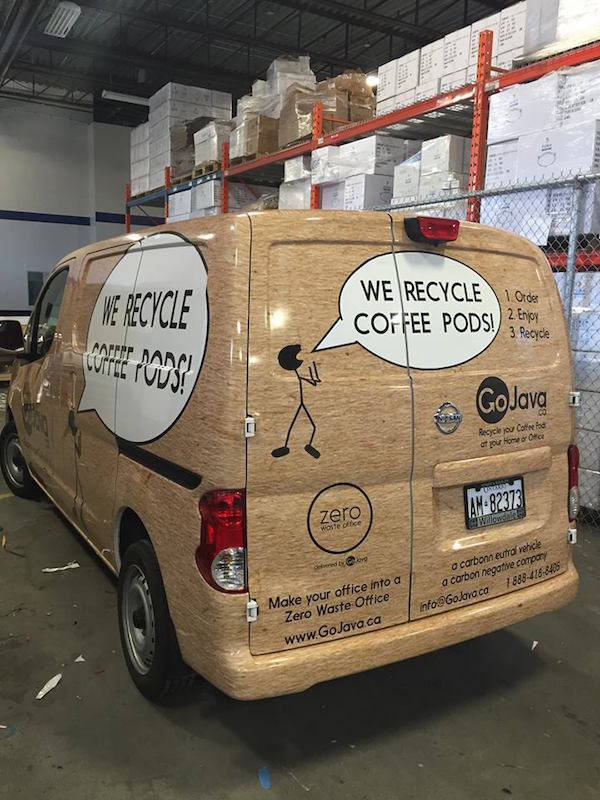
Recycling Coffee Pods: There has been much discussion about the coffee industry and the at-home use of coffee pods and capsules. Nespresso Canada offers an in-store recycling program as well as a mail-in program. Customers can request mail-in bags free of charge to mail back used coffee capsules with pre-paid postage provided. The discarded pods don’t need to be pre-cleaned as their program will separate the aluminum and the coffee grounds that are then composted. The aluminum is then used to make other goods as they’ve aligned with various global brands, we’ve seen items such as pens made from the Nespresso pods. Keurig has also made their K-Cup pods from acceptable recycled material and then can also be recycled again. However, consumers will need to remove the lids and coffee grounds before including in the recycling blue bin. An even better bet is to sign up with companies like Gojava, a company we previously featured, who will arrange everything for you from the drop-off of pods to the pick up of empty ones.
***
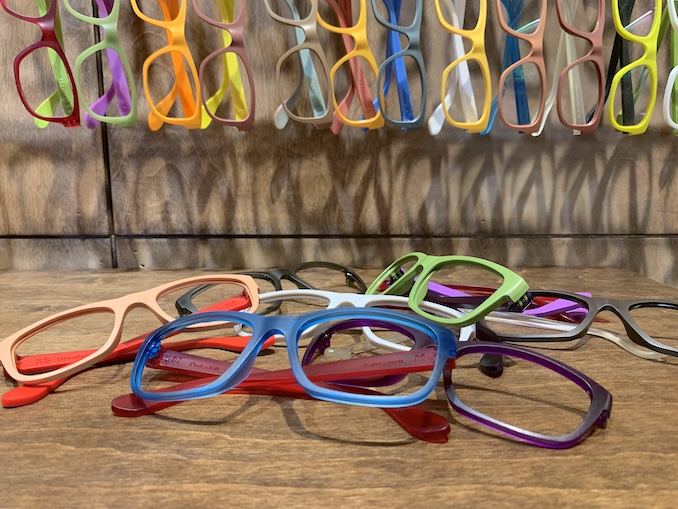
Dresden: Australian-made eyewear brand has made its first foray into the international market right here in Toronto. Co-Founder Bruce Jeffreys tells us they are looking to expand in more North American cities that align with the company’s core values. The stylish, sustainable and eco-friendly eyewear brand offers frames that are made with recycled goods that have served a meaningful purpose in a previous life including strong nylon from fishing nets and out of circulation banknotes. One universal flattering style is offered but with endless colour combinations in frames, arms and pins. All aspects of this business has the environment in mind including materials used in the stores themselves. Lifelong guarantee and remarkably affordable pricing with frames starting at $49 means more accessibility to eye care. Most lens prescriptions can be done in as little as 10 minutes in-store while you wait, including sunglasses. Trendsetters here are catching onto this brand’s popularity and, by the way, nothing goes to waste. The company’s policy is bring it back to the store if anything should break, or if you just want to switch things up, or don’t want them anymore. They also have an in house recycling program. Dresden now has three locations in Toronto: stackkt market, Little Italy, and Riverside.
***
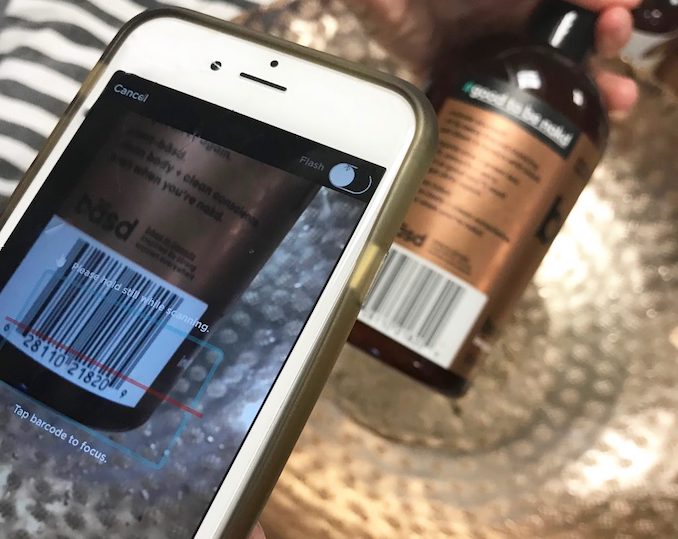
ThinkDirty App: (iOS and Android) The green health and beauty sector is growing rapidly but how green is green? What we put on our bodies are just as important as what we put in. Labels and ingredients can be pretty confusing and some beauty and green products can be misleading. The ThinkDirty App helps by educating consumers by breaking down the facts of each product – and there are thousands listed on the site. The simple app works by scanning in the barcode of any product on your mobile device. Information for that specific product will come up. You may be surprised to see what products live up to their marketing claims. The app lists many personal care, beauty, skincare and household products. Even some lesser known brands.


